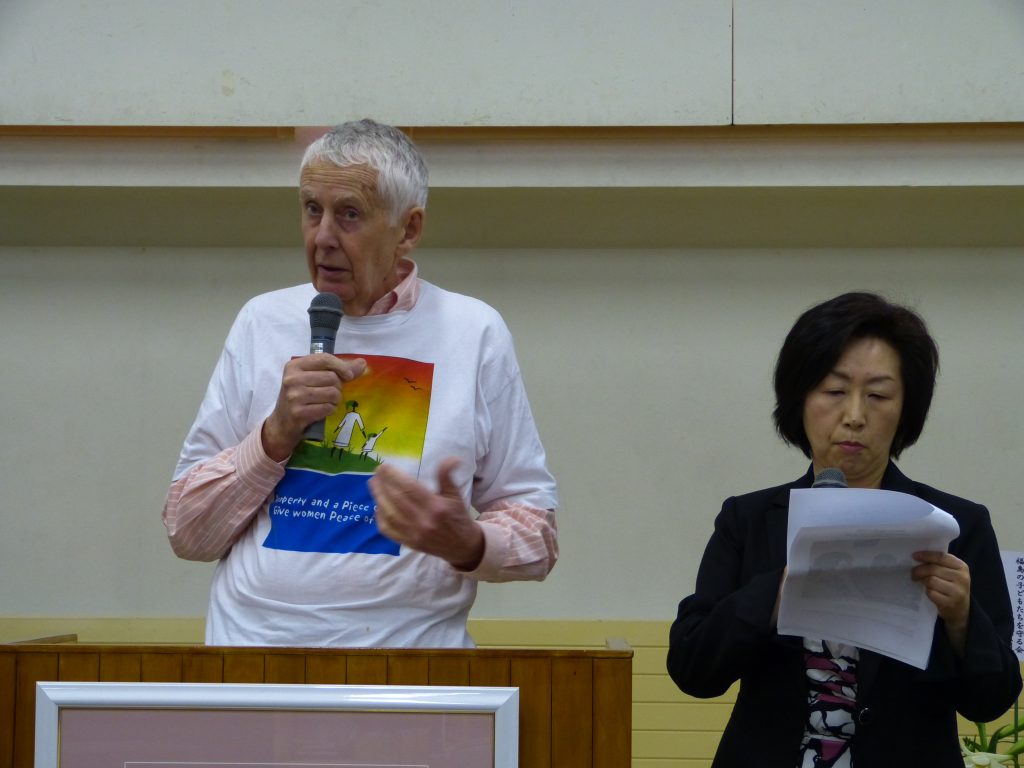
A tribute by Craig Castro
Robin Palmer, Oxfam GB (OGB)’s former global land advisor, passed away on Sunday 19 February 2023. He was a wonderful friend and colleague from whom I personally learned so much about land and property rights in Africa.
As a regional advisor for OGB in southern Africa, I worked closely with Robin in organizing a landmark conference on women’s land and property rights in eastern and southern Africa in collaboration with the FAO. Most importantly, perhaps, the conference provided a space to share research and practice and build networks between and among organizations, researchers, and activists; all committed to improving the lives of people living in poverty. Included in the conference were women affected by land grabbing and property stripping which gave voice to their issues and grievances. The intellectual leadership was provided by Robin and Kaori Izumi.
Robin and Kaori had a significant impact on issues of land and property rights for women and children in Africa and their friendship and mutual respect for one another was truly remarkable. In 2013, Kaori passed away from cancer, after which Robin was asked by the family to speak at her memorial service. As he said at the memorial service he was both honoured and privileged to speak as both shared a passion for land and property rights of women in Africa.
One of the most important things I learned from Robin was the importance of practical action to support implementation of progressive legislation on land and property rights. Following the women’s land rights workshop, I worked with Robin to develop a small program to support the demarcation of land in northern Mozambique, which was critical to secure communal land rights for small holder farmers.

Over the years we reflected together on how important actual implementation of legislation is to fundamentally changing the lives and livelihoods of marginalized women and men living in poverty in Africa. So often, legislation exists but is not put into practice and these gaps between theory and practice and the gaps between rights on paper and the enjoyment of rights in people’s lives, are exploited by elites. We discussed also how the work of civil society and activists in Africa was done with such commitment, often under difficult circumstances, and represented hope for the future in many countries.
Robin set up and managed the Women and Land Rights website for OGB, and the related email listserv, which provided a platform to share experiences and thinking across the region and beyond. Through the extensive network Robin developed, he was able to bring in experiences from Asia and other parts of the globe. When Robin moved to Mokoro he continued managing the website. Mokoro is an international development consultancy group established in 1982 by former ODI fellows working in Botswana. Robin’s passion for the land and property rights of poor and vulnerable easily integrated to the core business of Mokoro, which facilitated the continuation of the Land Rights in Africa website.
Following his death, an article for Mokoro by Martin Adams, and the ensuing comments from around the globe, shared on a number of platforms, show just how much Robin influenced others, including the many young students that he supported while working in universities in Zimbabwe (Rhodesia at the time Robin taught there), Malawi and Zambia.
Robin was sent by OGB to Aceh, Indonesia, following the 2004 tsunami, which had a devastating impact on seven countries of the region. He worked closely with local activists to secure land rights for poor people displaced by the tsunami, which had destroyed the government office where land titles were documented. Robin saw the main challenge as ensuring that the most marginalized and vulnerable populations retained access rights to land. From him, I learned how governments often destroy existing documentation in order to push the poor off the land that provides for their lives and livelihoods. When I worked in Libya, opposition groups and their armed affiliates bombed the government building which held land and property deeds. Just another example of how actions to undermine the most poor and vulnerable are taken by ruling elites and their followers.
Robin had the rare quality and skill to provoke people to think about their circumstances (projects, alliance building initiatives, policy development research, etc.) and apply new information. He was not one to immediately answer a question but sought rather to formulate questions such that new information was applied by the person posing the question.
I am glad that we maintained our relationship after we both left OGB. He always talked with passion about the work that he was doing with Mokoro through which he had the opportunity to influence the thinking of a new generation of researchers and activists, much as he influenced myself and others working with OGB and partners in Africa.
We invite anyone to write in with your comments on the legacy left by Robin. In this way we can celebrate his life’s work and show how his intellectual and practical leadership influenced others around the globe.
For those of you in Oxford, a funeral service will be held at 11 am on 22 March at South Oxfordshire Crematorium, Garford, Abingdon OX 13 5PA. Following the service, friends and family are invited to remember Robin at the Wytham Village Hall & Cricket Club, Halls Close, Wytham OX2 8QA.